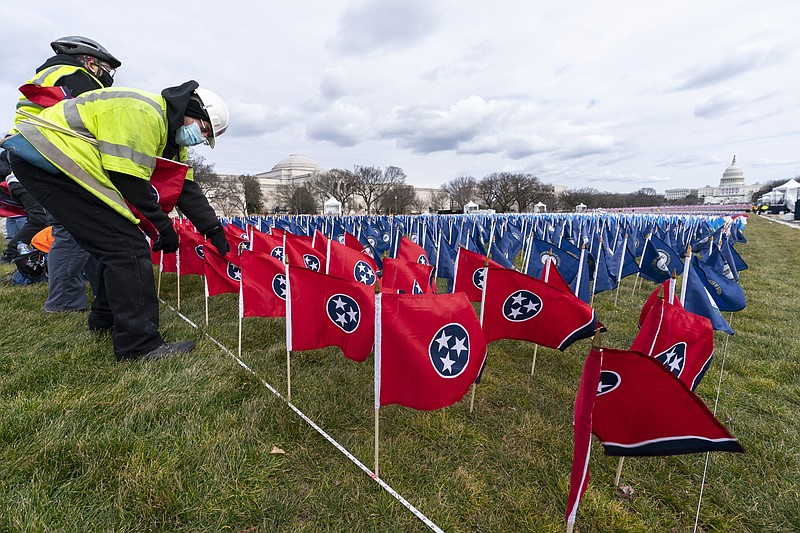Somehow, some way, against all fears the country's left wing had promulgated for more than two months, a peaceful transfer of power took place in America Wednesday.
The outgoing president did not bring an army around him to remain in power, he did not attempt a coup and he did not tear up the Constitution. He left office, and another man took his place. Just as it has always been for more than 220 years.
The outgoing president, Donald Trump, wished "the new administration great luck and great success."
The new president, Joe Biden, said "democracy has prevailed."
In a relatively short inaugural address on a sunny day in front of an audience at the U.S. Capitol that was socially distanced by a global pandemic that has killed more than 400,000, he - as many had speculated - said the country's future "requires unity."
"My whole soul is in this," Biden, who at 78 is the oldest man ever to hold the office of president, said. "With unity, we can do great things."
In making a plea for unity, he made frequent references to events exactly two weeks earlier, on Jan. 6, when supporters of Trump broached the Capitol in an attempt to stop the certification of Electoral College votes that officially gave the longtime senator and former vice president the election.
"I will be a president for all Americans," he said. "I will fight as hard for those who supported me as those who did not."
Moments earlier, though, Biden said if those who did not support him "take the measure of me and my heart" and still disagree with him, "so be it."
So much for unity.
The new president, just as Trump did four years ago, cast the nation as one that somehow had to be resurrected from the ashes.
Biden referred to the time as "a historic moment of crisis and challenge" and as "a winter in peril."
"Let's start afresh," he said.
However, the country didn't need to start afresh four years ago, and it doesn't now. Then, as now, it is a matter of exchanging one set of political views for another. Some will be happy with those ideas, and some will not. It was the same with Trump.
Biden also cast the primary struggle of the day as between the promise that "all men are created equal" and racism.
That rings hollow to most Americans, who live their lives free of racial animus but who saw cities burn, buildings vandalized, people hurt and livelihoods lost last summer in the name of racial justice.
Biden, in a cliche-ridden speech largely devoid of soaring rhetoric, cited Abraham Lincoln's appeal to "our better angels," said we should have "hope, not fear" and repeated the biblical promise from Psalms that "joy cometh in the morning." He also noted that the "world is watching."
He did not make promises of specific actions but said he would "repair our alliances," defeat our "toughest and deadliest virus" and concentrate on the challenges of "equity," "a climate in crisis" and "systemic racism."
For those who are afraid some of his proposed policies will put them out of work, increase their taxes, and leave them less safe in their communities, he had no words.
Perhaps in a final plea to the 74 million people who did not vote for him, some of whom still believe the election was stolen from his predecessor, Biden said his "sacred oath, before God and all of you," is that "I will always level with you" and that he will "defend the Constitution" and "defend America."
Many Americans, cognizant of his 47 years as a career politician, of his promises made and promises broken, will be skeptical.
For us, if Biden's policies somehow reflect the great center of America, where the majority of its people in both parties reside, if he somehow finds a way to be a unifying force by looking for common ground from all parties, he will have an opportunity to be an effective president.
If he remains a captive of the left wing of his party, as his campaign indicated he is, as his signing of dozens of executive orders on day one that undid popular actions taken by his predecessor signal he is, he will not be an effective president.
But "the American story" that he referred to in his inaugural address will go on. He just won't be the one writing it.
